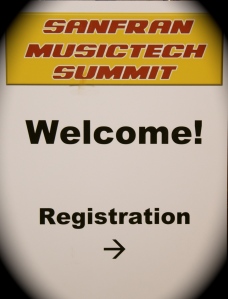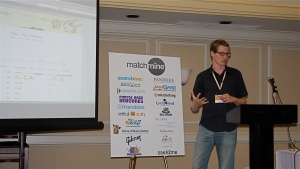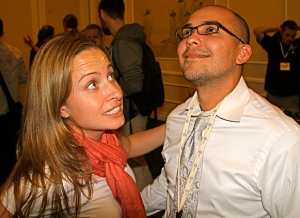We’ve been told at numerous points over the past couple months that John McCain and Sarah Palin are the correct people to run our country for the next four years. While I usually try to keep my political leanings out of the EvolvingMusic blog (I mean, we’re here for music, right? There’s enough politics already), I find it absolutely shocking that the McCain campaign continues a practice that is both disrespectful and illegal.
We hear them talk about “shaking up Washington,” bringing the idea of ethics back to politics, and a chance for change. We hear Palin all the time tell us that she’s going to “talk straight to the American people.” Basically, they’ve run their campaign on the idea of honesty, transparency, and a return to basics. If that’s the case, then why are they blatantly, without permission and regardless of the wishes of the musicians, using songs they have no right to use throughout their campaign?
For those of you unaware, an artist with a copyright on a song has to give permission for the song to be used. McCain’s camp has now used, without permission and frequently with strenuous objections by the performers, songs by Heart, Foo Fighters, Jackson Browne, John Mellencamp and most recently, Survivor. What’s worse is that they aren’t limiting this illegal use to just playing the songs on campaign stops… they’ve gone so far as to include a few in television ads.
What this practice demonstrates is not only a willingness to steal music from the artists, (and therefore a pre-election demonstration of how rigidly McCain wants to follow the laws of our land) but a blatant attempt to sway public opinion and perception based on the popularity of pop music. McCain is trying to make himself popular by using music that most people know and enjoy. The problem is that when the majority of the artists are against McCain and his policies and don’t want to be associated with him in any way, it amounts to a willful and heinous disregard for the wishes of other people, the legal rights they have over their own intellectual material, and an unabashed attempt to mislead voters by pulling at their musical heartstrings.
While most artists have simply spoken out and demanded the cessation of usage of the songs by the McCain camp, Jackson Browne has stood up and filed suit against McCain and the Republican Party. The problem is that even if the artists request a stop to it or file suit, the song has already been used, the damage has already been done. You can’t, as we’re often told, unring the bell. Just how many people nationwide are even aware when they heard the Foo Fighter’s “My Hero,” that the Foo Fighters would later strongly object to the use and tell McCain to knock it off? My guess is not as many as actually heard it.
Now obviously, my interest here as a writer covering music is the issue of songs being used without the permission of their owners, and what that means for the music industry, and more importantly, the artists. If a man like Jackson Browne has been making music all his life while simultaneously engaging in supporting the Democratic party, he should at least be given the right to turn down McCain’s request. But if McCain doesn’t even bother to request, it hurts the entire industry by setting a standard under which a prominent politician running for public office can get away with whatever he wants musically, until someone like Browne steps in to stop him. The public usage of music, particularly for endorsement, without the express written consent of the musician is a slippery slope that would be very dangerous to start down.
But music and copyright issues aside, let’s look at the fundamental issue here. John McCain and Sarah Palin are thieves. They are stealing other peoples’ work, using it against their wishes and using it to promote themselves. They are disregarding numerous laws in the process and establishing an atmosphere where they demonstrate their belief, as they share with the current administration, that they are above the law. You talk about speaking for the people, but here they are shouting for people that want no part of them. And the really big question you need to ask is this: if a Senator from Arizona and the Governor of Alaska are willing to so blatantly infringe on other peoples’ rights, use things that aren’t theirs for their own political gain, and actively mislead the very citizens they are supposedly “straight talking” to, what outrageous and illegal things will they be willing and capable of doing if they actually become the Executive Branch?
For Part 2 of this story, click here.








